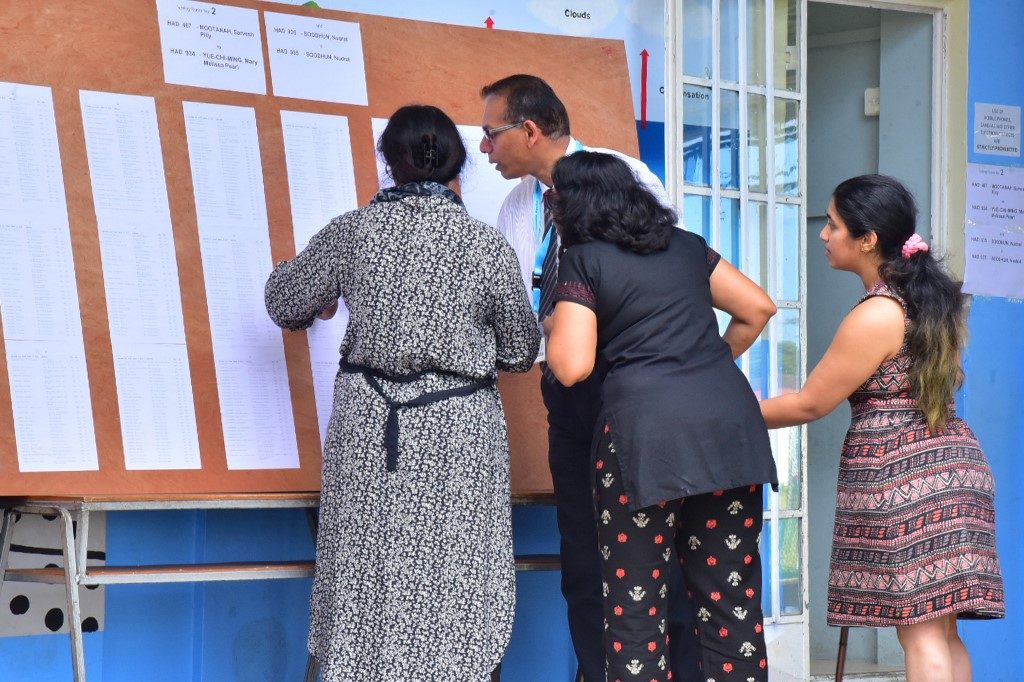SUMMARY
This is AI generated summarization, which may have errors. For context, always refer to the full article.

PORT LOUIS, Mauritius – Mauritians are voting in the first election since Prime Minister Pravind Jugnauth was installed in the job after his father stepped down in 2017.
Jugnauth succeeded his father Anerood Jugnauth as prime minister without a popular vote when the older man stood down two years ahead of schedule.
The 57-year-old is asking voters to judge him on his short time in office, pointing to his record on modernizing public infrastructure and economic reforms in the former British colony.
But he faces two opponents who say his appointment to the island’s top job amounted to little more than nepotism.
After 3 hours of voting, some 15% of almost one million registered voters had cast their ballots, according to officials in the Indian Ocean state.
“I voted early to avoid long queues,” Sunita, a voter in her 40s, told Agence France-Presse (AFP) in the central town of Curepipe. She did not want to say who she voted for, commenting only that change should not be stopped.
Businessman Saoud, 55, who was casting his vote in the coastal village of Trou d’Eau Douce, told AFP he admired opposition leader Navin Ramgoolam, adding: “I’m not happy with the performance of the current government with regards to small businesses.”
Campaigning lasted for two weeks, with Mauritius bedecked in the flags and colors of the rival parties. Results are expected on Friday, November 8.
The country of 1.3 million people has evolved from a poor, agriculture-based economy, to one of Africa’s wealthiest nations and financial services hub.
Mauritius, comprised of 4 volcanic islands roughly 1,800 kilometers (1,100 miles) off the eastern coast of Africa, is predominantly Hindu but has sizeable Christian and Muslim minorities.
New alliances
For the first time in decades, 3 distinct political blocs will vie for power in the legislative elections. New alliances could be likely if none can clinch an absolute majority.
Jugnauth heads the center-right Morisian Alliance while Navin Ramgoolam, a two-time former premier leads the center-left National Alliance and one of his former allies Paul Berenger is going it alone with his Mauritian Militant Movement.
Berenger, who briefly served as prime minister between 2003 to 2005, has denounced dynastic politics and accused Jugnauth of presiding over “scandals of all kinds.”
The prime minister has banked on the strength of the Mauritius economy – it grew 3.8% in 2018 – and key reforms such as introducing a minimum wage and hiking pensions.
Mauritius has increasingly come under fire for helping global companies avoid paying taxes – often in poor African nations – and was until October on a European Union watch list.
General unemployment, while low compared to the rest of the continent, also remains high among youth at 22%, and inequality is seen to be rising.
Voters are choosing 62 MPs – 60 from the main island of Mauritius, and two from Rodrigues, a small island some 600 kilometers (370 miles) to the east.
The Electoral Commission then appoints 8 other representatives from among those not elected, but who received a high number of votes, to rebalance the distribution of seats between parties and communities in the national assembly. – Rappler.com
Add a comment
How does this make you feel?
There are no comments yet. Add your comment to start the conversation.